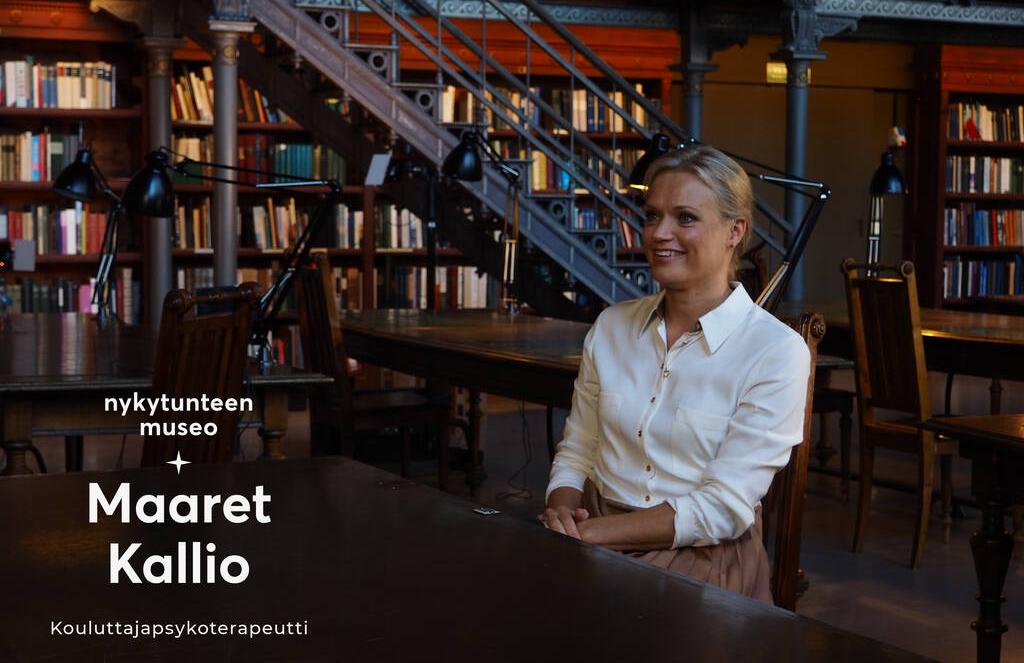Thessaloniki gets ready for its metro launch in November
The underground rapid transit lines have been under construction for almost two decades due to various project delays
 TheMayor.EU logo
TheMayor.EU logo 
Psychotherapist Maaret Kallio analyses the role of emotions in crisis recovery , Source: Finnish The Museum of Contemporary Emotions
The Finnish government created the Museum of Contemporary Emotions to help people recover from the effects of the pandemic
On 7 October, the Finnish Prime Minister’s office unveiled the Museum of Contemporary Emotions (MOCE). The virtual museum explores the events that have occurred and the feelings we have felt since the outbreak of COVID. With MOCE, the government aims to help support people in a post-COVID world and allow them to reflect on their emotions.
For over a year, people have only focused on one thing: surviving. All of the measures, restrictions, limitations, and rules were put in place to ensure the safety of citizens. Now, the time has come to shift this focus and begin working on recovering.
MOCE combines science and art, recording the experiences and emotions brought about by the pandemic. Until this moment, the emotional and mental well-being of citizens was somewhat put on hold. That is, preventing the spread of the virus was the government’s priority. With the launch of MOCE, Finland now hopes to tend to the emotional needs of citizens.
To create this museum, the government first tracked people’s emotions by examining data, search engine trends, popular consumption patterns, social media, surveys, behaviours, and the news. Using this information, it then created a timeline of feelings and the events they were prompted by.
Upon visiting the MOCE, one is immediately consumed by emotions. The first event on the timeline marks the detection of COVID in Finland. More specifically, one can hear a recording of a briefing from 29 January 2020. The message ominously states: “We have now found this new type of virus, Covid-19, in Finland as well.”
From then onwards, one can scroll through a total of 14 moments, with each representing a key event. Some of these moments record the toilet paper chaos, the ban on events, distance learning, the first death from COVID and the subsequent conspiracy theories, mourning, and closures.
The MOCE further brings the audience back in time, reminding them of the desperate need to find new ways of coping with isolation. That is, it refers to the first week of April when the Finnish post delivered over 1 million parcels as people searched for new hobbies to alleviate their anxieties.
Moving forward, MOCE records several other key events including 1 May, mitigations, returning to school, summer with the virus, and mask recommendations. In the end, the MOCE invites the viewer to write a letter, looking to the future. What is more, it asks: “What have you learned about yourself?”
In a press release by the Finnish government, Head of Communications from the Finland Forward project Päivi Tampere discussed the virtual museum, noting:
“The Museum of Contemporary Emotions is designed to support citizens in recovering from the crisis while recording extraordinary times in an exceptional way. Understanding and recording emotions will also help our society anticipate similar events in the future.”
The MOCE is available online in Finnish, Swedish, and English. To access the virtual museum, visit museumofcontemporaryemotions.fi (English version).

The underground rapid transit lines have been under construction for almost two decades due to various project delays

Now you can get your wine in Talence by paying directly in Bitcoin

That’s because the state has to spend money on updating the railway infrastructure rather than subsidizing the cost of the popular pass

Rethinking renewable energy sources for the urban landscape

The examples, compiled by Beyond Fossil Fuels, can inform and inspire communities and entrepreneurs that still feel trepidation at the prospect of energy transition

Now you can get your wine in Talence by paying directly in Bitcoin

The 10th European Conference on Sustainable Cities and Towns (ESCT) sets the stage for stronger cooperation between the EU, national and local level to fast track Europe's transition to climate neutrality.

At least, that’s the promise made by the mayor of Paris, Anne Hidalgo

The underground rapid transit lines have been under construction for almost two decades due to various project delays

At least, that’s the promise made by the mayor of Paris, Anne Hidalgo

Hostal de Pinós is located in the geographical centre of the autonomous region

Despite its church-y name, the district has long been known as the hangout spot for the artsy crowds

Urban dwellers across the EU are having a say in making their surroundings friendlier to people and the environment.

Forests in the EU can help green the European construction industry and bolster a continent-wide push for architectural improvements.

Apply by 10 November and do your part for the transformation of European public spaces

An interview with the Mayor of a Polish city that seeks to reinvent itself

An interview with the newly elected ICLEI President and Mayor of Malmö

A conversation with the Mayor of Lisbon about the spirit and dimensions of innovation present in the Portuguese capital














